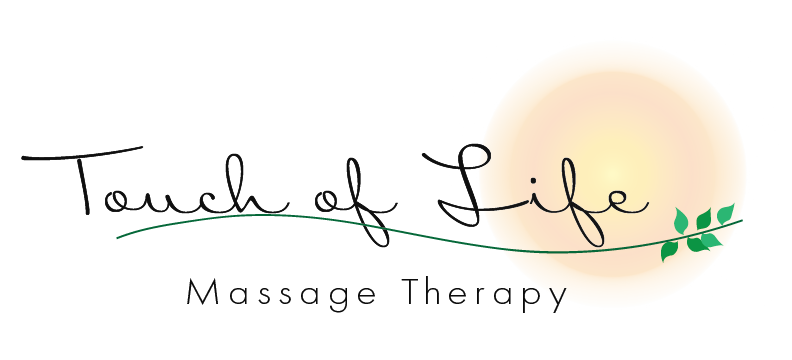Massage therapy has been extensively studied for its effects on various aspects of human health and well-being. Research highlights the potential benefits of massage therapy across a wide range of health conditions, from stress relief to improvements in immune function, sexual health, and overall well-being. This review synthesizes key findings to showcase the promising outcomes of massage therapy.
Physiological Effects
Massage therapy has been shown to exert significant physiological effects on the body. A pivotal study by Field et al. (2005) demonstrated that massage therapy led to a decrease in cortisol levels and an increase in serotonin and dopamine, which are associated with stress reduction and mood enhancement. These findings suggest that massage may help regulate the body’s stress response, providing both physical and psychological benefits.
Rapaport et al. (2010) compared Swedish massage therapy with light touch and found that massage led to a greater decrease in arginine vasopressin, a hormone linked to stress, as well as smaller reductions in cortisol levels. Additionally, the study observed an increase in circulating lymphocytes, which are essential for immune function, suggesting that massage therapy may have beneficial effects on the immune system.
Immune System Effects
Massage therapy’s potential to influence immune function has been a major focus of research, particularly in populations with compromised immune systems, such as individuals living with HIV/AIDS. Ironson et al. (1996) found that massage therapy was associated with increased numbers of natural killer cells and enhanced cytotoxicity in HIV-positive individuals. These results suggest that massage therapy may help enhance the immune system’s ability to fight infections.
However, not all studies have reported similar findings. Birk et al. (2000) found no significant changes in immune function for HIV-infected individuals receiving weekly massage therapy. This highlights the need for further research to understand the conditions under which massage therapy may be most effective in boosting immune function.
A systematic review by Hillier et al. (2010) explored the effects of massage therapy on people with HIV/AIDS. The review found some evidence supporting massage therapy’s positive impact on quality of life, especially when combined with other stress management techniques. However, the authors noted that the studies included were small and of moderate quality, emphasizing the need for more rigorous research.
Effects on Sexual Health
Massage therapy has also been found to have positive effects on sexual health. Gökbulut et al. (2022) conducted a study on Turkish women living in rural areas, demonstrating that foot massage led to a reduction in sexual distress and an increase in sexual self-confidence. These findings suggest that massage therapy, even when not directly targeting sexual areas, can have a profound impact on sexual well-being, particularly by reducing anxiety and improving self-esteem.
Broad Health Benefits
Massage therapy has been shown to benefit a wide range of conditions beyond stress relief. Field (2016) conducted a comprehensive review of massage therapy research, highlighting its positive effects on conditions such as prenatal depression, pain syndromes, hypertension, autism, and autoimmune disorders. The review found that massage therapy often produced better outcomes than control or comparison groups, suggesting its versatility and effectiveness across different health issues.
Conclusion
The collective evidence suggests that massage therapy can have significant positive effects on various aspects of health and well-being, from reducing stress and improving mood to enhancing immune function and sexual health. While the existing research is promising, more large-scale, rigorous studies are needed to further clarify the full range of massage therapy’s benefits. As with any health intervention, individuals should consult with healthcare professionals before incorporating massage therapy into their treatment plans.
References
Birk, T. J., McGrady, A., MacArthur, R., & Khuder, S. (2000). The effects of massage therapy alone and in combination with other complementary therapies on immune system measures and quality of life in human immunodeficiency virus. Journal of Alternative and Complementary Medicine, 6(5), 405-414. https://doi.org/10.1089/107555300750042680
Field, T. (2016). Massage therapy research review. Complementary Therapies in Clinical Practice, 24, 19-31. https://doi.org/10.1016/j.ctcp.2016.01.004
Field, T., Hernandez-Reif, M., Diego, M., Schanberg, S., & Kuhn, C. (2005). Cortisol decreases and serotonin and dopamine increase following massage therapy. International Journal of Neuroscience, 115(10), 1397-1413. https://doi.org/10.1080/00207450590956487
Gökbulut, N., Bal, Z., & Uçar, T. (2022). The effect of foot massage applied to Turkish women living in rural areas on sexual distress and sexual self-confidence: A randomized controlled study. Sexuality and Disability, 40(1), 185-196. https://doi.org/10.1007/s11195-022-09734-5
Hillier, S., Louw, Q., Morris, L., Uwimana, J., & Statham, S. (2010). Massage therapy for people with HIV/AIDS. Cochrane Database of Systematic Reviews, (1), CD007502. https://doi.org/10.1002/14651858.CD007502.pub2
Ironson, G., Field, T., Scafidi, F., Hashimoto, M., Kumar, M., Kumar, A., Price, A., Goncalves, A., Burman, I., Tetenman, C., Patarca, R., & Fletcher, M. A. (1996). Massage therapy is associated with enhancement of the immune system’s cytotoxic capacity. International Journal of Neuroscience, 84(1-4), 205-217. https://doi.org/10.3109/00207449608990942
Rapaport, M. H., Schettler, P., & Bresee, C. (2010). A preliminary study of the effects of a single session of Swedish massage on hypothalamic-pituitary-adrenal and immune function. Journal of Alternative and Complementary Medicine, 16(8), 849-854. https://doi.org/10.1089/acm.2010.0143


